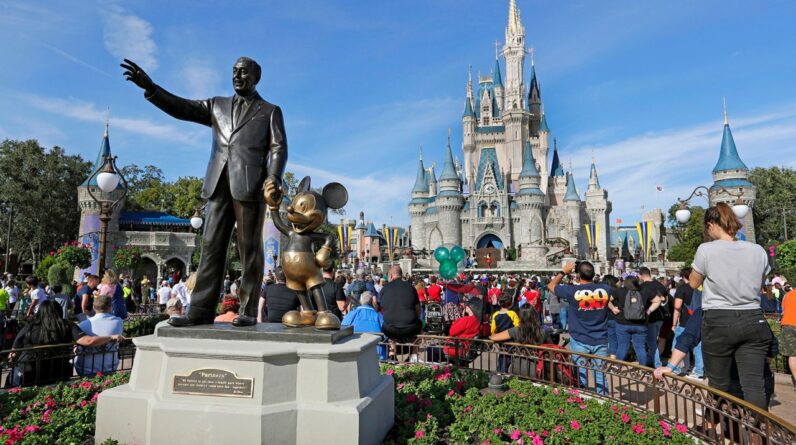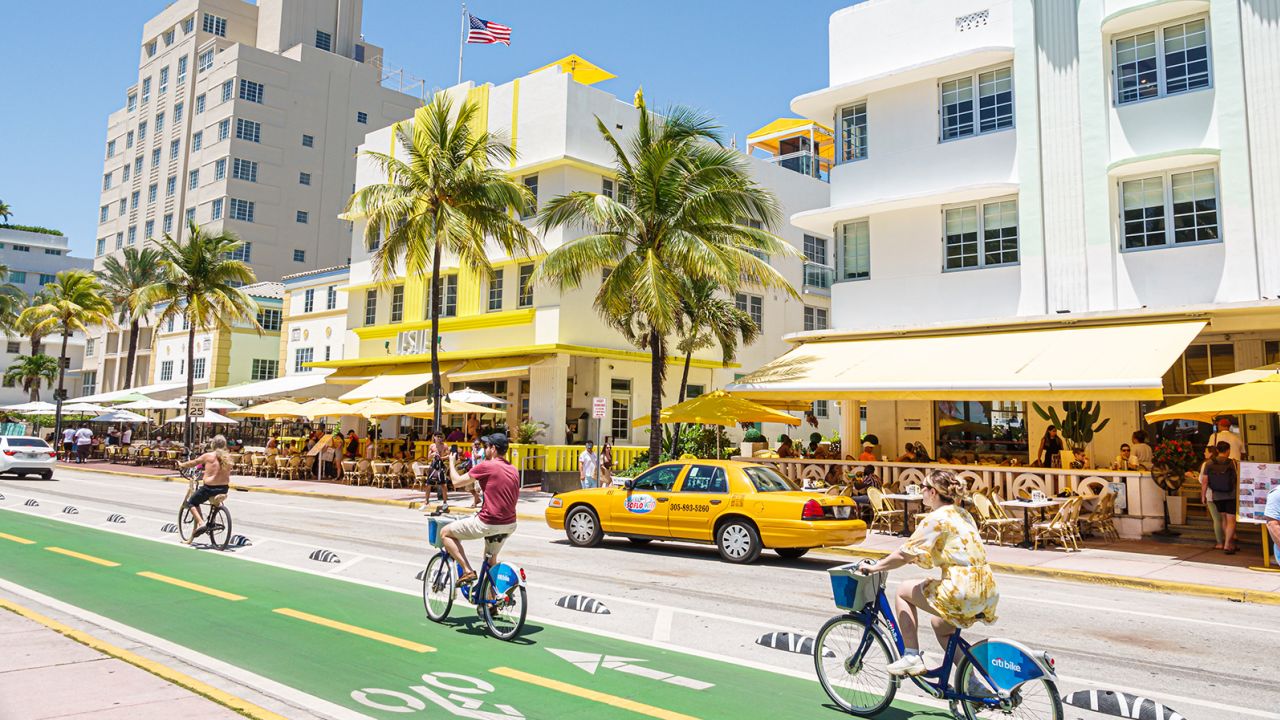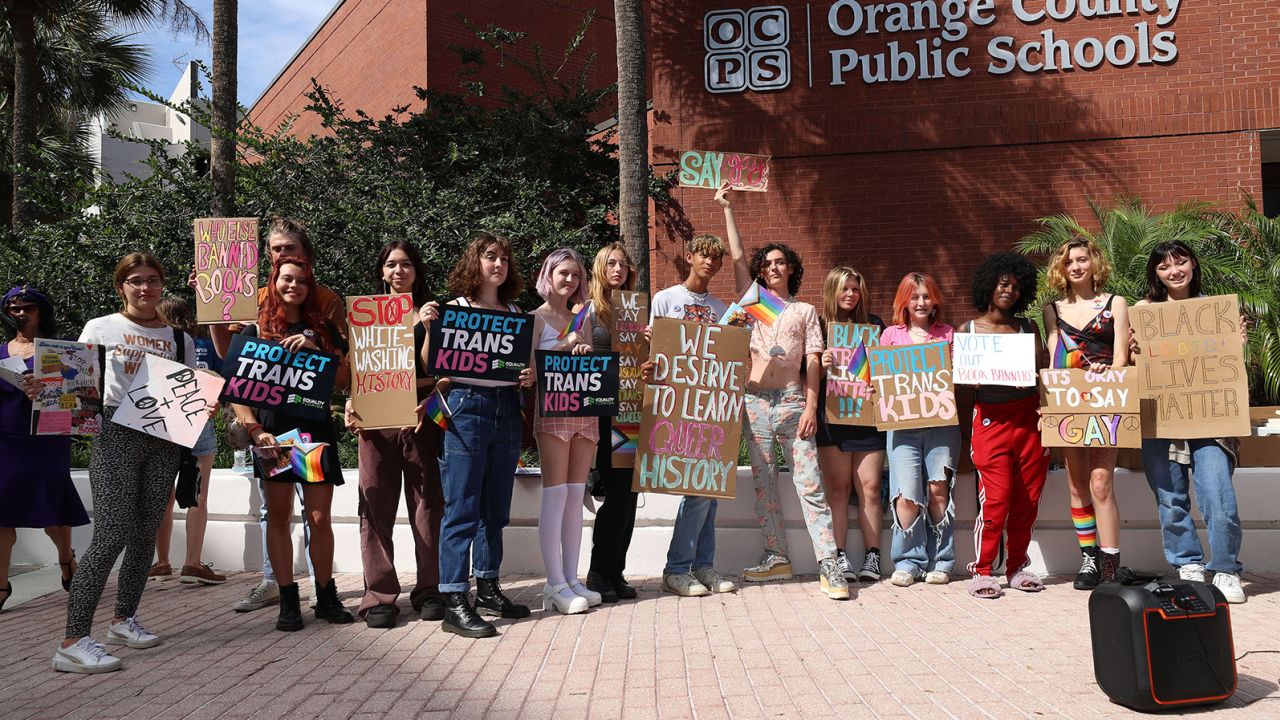
CNN
—
Florida boasts hundreds of miles of beaches, warm year-round temperatures, and is home to Walt Disney World, the world’s most famous theme park.
Tourism is a major driver of the state’s economy, bringing in about $101.6 billion, according to Visit Florida, and supporting more than one million jobs. But political battles that have heated up in recent months could cast a shadow over the Sunshine State’s tourism appeal.
A recent travel advisory from the National Association for the Advancement of Colored People (NAACP) warning that “Florida is openly hostile to African Americans” is one of several warnings issued by minority groups. Equality Florida, the Human Rights Campaign and the League of United Latin American Citizens (LULAC) have also warned against travel, citing a series of laws that demonstrate how the state is “hostile” to the communities they represent.
Florida Gov. Ron DeSantis, who officially announced his 2024 presidential campaign on Wednesday, has implemented a conservative agenda while in office, including bans on teaching about critical race theory, sexual orientation and gender identity in schools and loosening restrictions on concealed weapons.
While it’s too early to tell if the tense political climate will have a substantial impact on the state’s tourism industry, some travelers are incorporating advice and politics into their decisions. Some industry experts say the warnings could backfire, hurting minority groups who make a living from tourism.
Matt Berna, Intrepid Travel president and CEO for the Americas, said his company “unequivocally condemns the recent policies of Gov. Ron DeSantis,” but that Intrepid does not believe in travel boycotts.
“While the intent behind a Florida boycott is to do the right thing, the reality is that travel boycotts often hit the wrong people. Travel boycotts often further isolate vulnerable people, including many of the BIPOC-owned close partners who rely on these tourism dollars and are in no way hostile in their approach to other BIPOC travelers.”
The Future of Black Tourism, Blacks in Travel & Tourism and the Black Travel Alliance also criticized the travel warnings, saying they would harm black businesses.
“The NAACP’s travel advisory contradicts the efforts of industry organizations and initiatives such as the Future of Black Tourism, Blacks in Travel & Tourism, the Black Travel Alliance and others who have been intentionally working to level the playing field for to small black businesses in Florida and across the country,” they said in a joint statement Monday.
“The efforts of these organizations have made more black travelers and others intentional about seeking out and doing business with black businesses in the industry to help sustain and scale this underrepresented segment of travel and tourism,” added the communicated
Kelley Robinson, president of the Human Rights Campaign, which advocates for LGBTQ+ equality, criticized DeSantis and “his frantic appeal to extremists.” Robinson said the organization viewed issuing an advisory as a duty “to provide guidance to our community.”
DeSantis called the notices “a political stunt” Wednesday during his candidacy announcement on Twitter Spaces.
He said Florida just had its fourth-highest tourism in its history, “and our view is that we want everyone to be successful regardless of their skin color.”
Dana Young, president and CEO of Visit Florida, the state’s official tourism marketing corporation, echoed what she called the notices a “political stunt” that would affect Florida’s hospitality workers.
“It’s disappointing when partisan organizations try to weaponize travel to achieve political ends. Travel advisories issued with blatant falsifications of fact do a disservice to the traveling public and are disrespectful to the incredibly diverse visitors and residents who pride themselves on call Florida home,” Young said in the statement, adding that “Florida had the largest market share of any state in the country among African-American tourists at 21.4 percent” last year .
There are some visitors who refuse to travel to Florida while DeSantis and his politics continue as they are.
David Wagner of Pennsylvania is one of them.
“Every week there is new legislation that is more impactful than the last, and I am truly concerned about the legislative changes being pushed by the Florida Governor’s office. These changes appear to be politically motivated and do not seem to align with the wishes of the majority of residents, and I have a big problem with that trend generally in our politics,” says Wagner.
“It is alarming to see that more and more representative offices are turning into partisan battlegrounds instead of serving the needs of the people. As much as I love Miami and usually visit Florida three or four times a year, I have consciously stopped traveling to Florida to express my opposition.”
While travel advisories may make headlines, there’s no indication yet that they’ll result in less tourist traffic on the ground.
In 2022, Florida welcomed 137.6 million visitors, the most in the state’s history, according to Visit Florida estimates. Last week, the governor’s office announced that the state attracted a record 37.9 million visitors between January and March 2023.
Scott Keyes, founder of Going.com, an airfare tracking site, says he has so far seen no impact on demand for flights to Miami or Orlando, both of which are in the top 10 tourist destinations in the United States.

“Florida has seen an insatiable demand for travel, especially in recent years, and that doesn’t appear to be reversing,” he said.
Also, major destinations like Tampa and Orange County, where Orlando is located, have been quick to mitigate any fallout by making it known that all tourists will be welcome.
The day after the NAACP issued its advisory, Tampa Mayor Jane Castor tweeted: “As the Mayor of Tampa, I can absolutely assure anyone and everyone who is considering visiting or moving to Tampa that will be welcomed with open arms. Diversity and inclusion are central to what makes Tampa one of the greatest and friendliest cities in America. That will never change, no matter what happens in Tallahassee.”
Similarly, Orange County Mayor Jerry Demings’ office issued a statement saying, “Hate is never welcome here. We look forward to working with the NAACP to ensure they and others that Orange County is a caring, compassionate and welcoming community.”
The travel advisories have made some minority communities more determined to travel to Florida.
New York resident Michael Galbe, who had booked his trip before the notices were posted, said he never considered changing his plans.
“I especially feel like I want to be MORE out and proud in Miami to give visibility to the gay tourism dollar,” Galbe said.
But the hits to the state’s tourism credentials may end up being more of a trickle than a trickle, and could fall on both sides of the political divide.
Pete Werner, owner of Dreams Unlimited Travel, a Disney-focused travel company based in Orlando, says his business hasn’t seen many cancellations, but “the handful that have been people who don’t like it Disney policy or LGBTQ+ travelers who don’t want to spend their money in Florida.”
Disney has been in a long-running dispute with the Florida governor since the company opposed legislation DeSantis signed last spring, dubbed by critics the “Don’t Say Gay” bill. It restricted the teaching of sexual orientation and gender identity in schools.

Werner sees the travel advisories as political hyperbole on both sides, but says “politics don’t help.”
He attributes most of the decline he’s seen in bookings at Disney World to a reaction to the company’s price hikes, rather than its policy, because its bookings for Disney Cruise ships have they have doubled since last year.
Where Werner sees cause for concern is with international visitors, who he says have been hurt by rising prices and the strength of the dollar, and who have expressed concerns about gun violence and lax gun laws in Florida.
As a Florida resident, however, Werner says nothing has changed. “I’m a gay man, I’ve lived in Orlando since 1998, even though I don’t feel welcomed or accepted by my government, my life on the ground hasn’t changed.”
Other Floridians agree they haven’t seen big changes in tourism yet, but some are concerned about where the state may be headed.
Kristen Panebianco, a 31-year-old woman who lives in Miami, says she sees the travel advisories as “less about the minority groups that are most at risk in Florida, but about organizations taking a stand against a point of view extremist that seems to be consolidating in the state”.
She explains how DeSantis’ crackdown on things like drag shows, through his signing of SB 1438, diverts attention from the real issues at stake in the state, like gun legislation. “Men dressed as women on the street are not dangerous to children and families, but guns are.”
“What makes Miami particularly special is how diverse and eclectic it is. People are concerned that there’s a small minority of people making decisions that aren’t necessarily representative of the state, trying to whitewash it, and there’s concern about what will happen next, especially when it comes to schools and legislation,” Panebianco. add.
African-American travel blogger Jameela Malcolm, who lives in Fort Lauderdale and blogs about places to see around the state, says she hasn’t seen any impact on her business so far.
While she’s concerned about how these warnings could affect her community, she says she’s determined not to let it affect her ability to travel.
Malcolm says he wants to encourage others to follow his example and come “to explore the diverse communities and cultures that make Florida beautiful.”
Correction: An earlier version of this story misspelled Pete Werner’s last name.
[ad_2]
Source link





